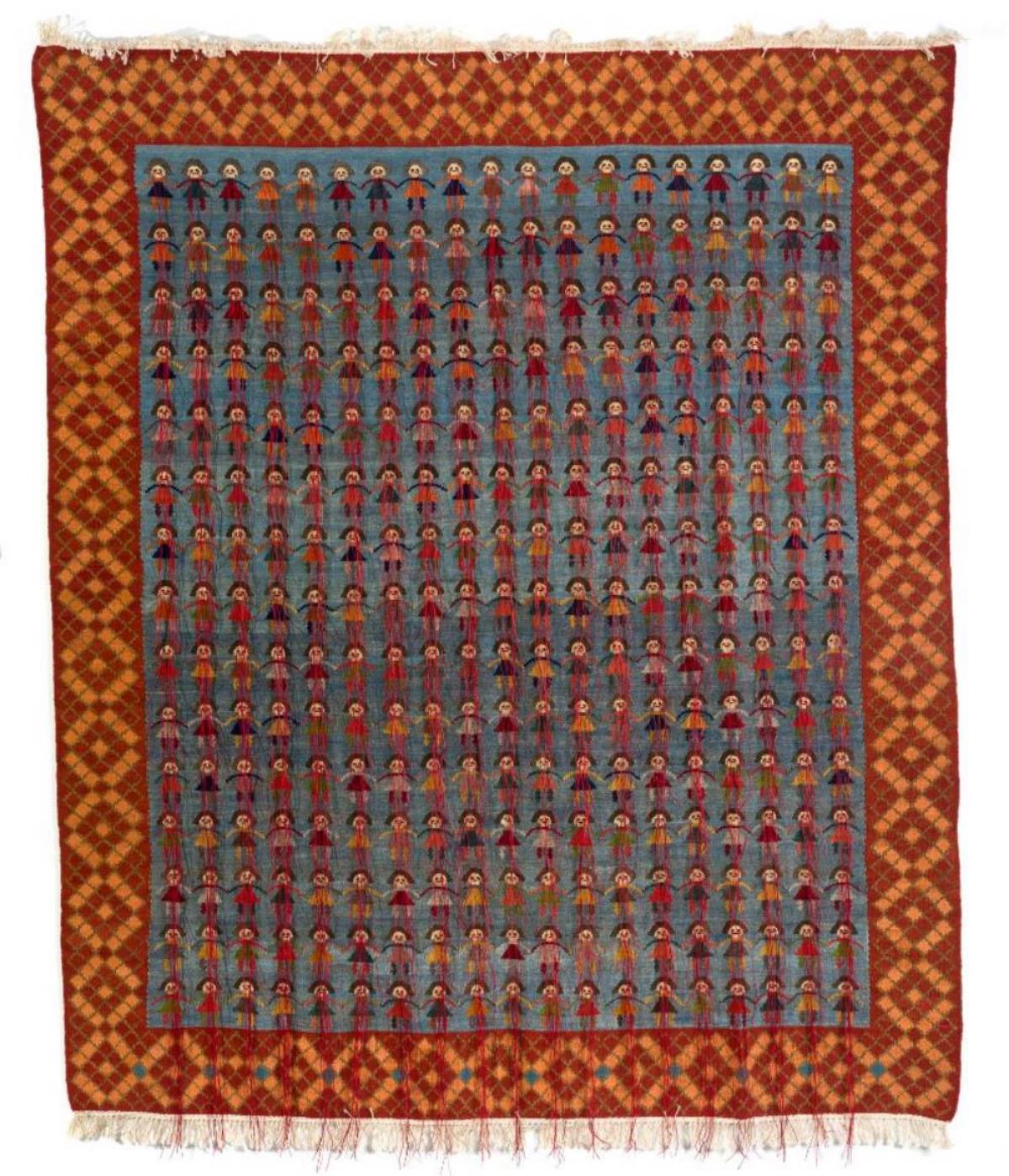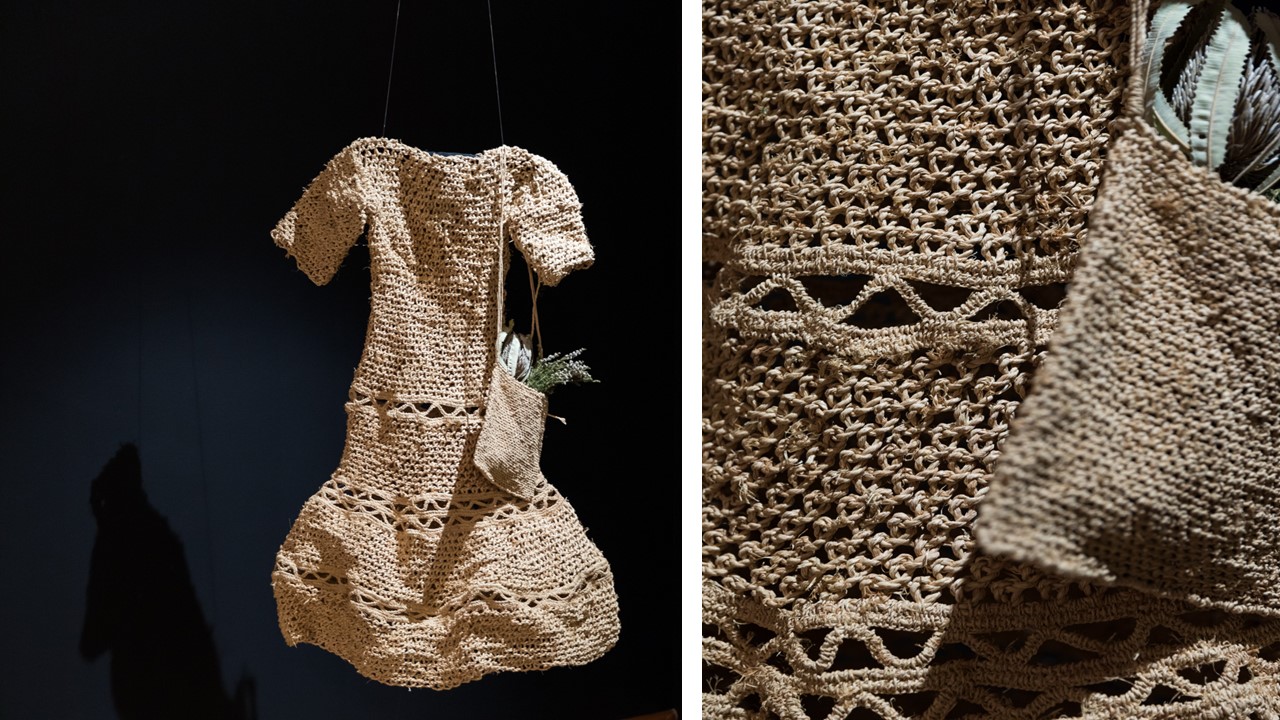2023

The Wangaratta Contemporary Textile Award celebrates the diversity and strength of Australian textile art. Building on Wangaratta's long and prominent history of textile manufacturing, and craft making, the award furthers this unique tradition and social history by elevating and promoting the development of contemporary textile practice in Australia.
Winner
Sepideh Farzam, a Sydney based Iranian contemporary artist, was the recipient of the prestigious $40,000 acquisitive award for her work Losing Eyes for Freedom, 2023.
The collaborative work was driven by the Farzam’s observation and deep concern around the ongoing discrimination and severe restrictions of women’s rights in Iran. The work is inspired by the recent protests by women on the streets of Iran, following the death in police custody of young Kurdish woman Mahsa Amini, who was detained by the morality police for wearing her hijab or hair covering incorrectly. As a result, hundreds of people have been killed and thousands more imprisoned for demonstrating against the regime. Protesters have been violently attacked, and 500 were blinded as a consequence.
Inspired by these terrible events, Sepideh Farzam commissioned a craft-woman (unnamed) to hand weave a carpet representing the young women hand in hand. Farzam then hand-stitched waxed threads through each girls’ face to represent the bleeding and blind eyes.
Award judge, Dr Rebecca Coates, an accomplished museum director, curator, public speaker, writer, and lecturer, commented on the important conversation and awareness the artwork presented to capture current issues of the time:
“This year, I was looking for artists’ works that demonstrating an excellence in material practice in whatever form, and which talked to our shared understanding of the world in which we live. A work that touched the heart, the mind, and the soul. The winning work by Sepideh Farzam, Losing Eyes for Freedom (2023), a handwoven carpet with waxed threads, is impressive in scale, collaborative in nature, and speaks to our times. Like many of the weaving traditions it draws on, it made through collaboration. And like many traditional crafts often done by women, alludes to the often-invisible nature of many of these repetitive tasks.
"The work also talks to a larger truth, and the systemic abuse and treatment of women in many countries that continues to this day: forbidden to drive, forbidden to go to school, forbidden to protest, and the results of what, for us, are every-day acts. These are conversations that must continue to be had in a country like Australia, and ones that we can’t take for granted."
Highly Commended
The Highly Commended Ruth Amery Award was awarded to Kyra Mancktelow for her work, One continuous string, 2021.
Kyra Mancktelow, a Quandamooka woman with links to the Mardigan people of Cunnamulla, is a Brisbane based multidisciplinary contemporary artist whose practice investigates legacies of colonialism, posing important questions such as how we remember and acknowledge Indigenous histories. Mancktelow recreates the uniforms First Nations children were forced to wear at Moongalba (Myora mission). The attempt at assimilation was weakened by continuing traditional weaving practices.

Catalogue
A beautiful catalogue featuring the year's finalist works is available in hardcopy and online.
Read the catalogue.
For further information on the 2023 exhibition, visit the exhibition page.
Sepideh Farzam, Losing Eyes for Freedom, 2023, hand woven carpet, waxed threads, 210 x 166cm. Winner of the Wangaratta Contemporary Textile Award 2023. Kyra Mancktelow, One continuous string, 2021, handmade garment and dilly bag, Quandamooka traditional woven fibres, 97 x75 x 40cm. Highly Commended Ruth Amery Award winner, Wangaratta Contemporary Textile Award 2023.